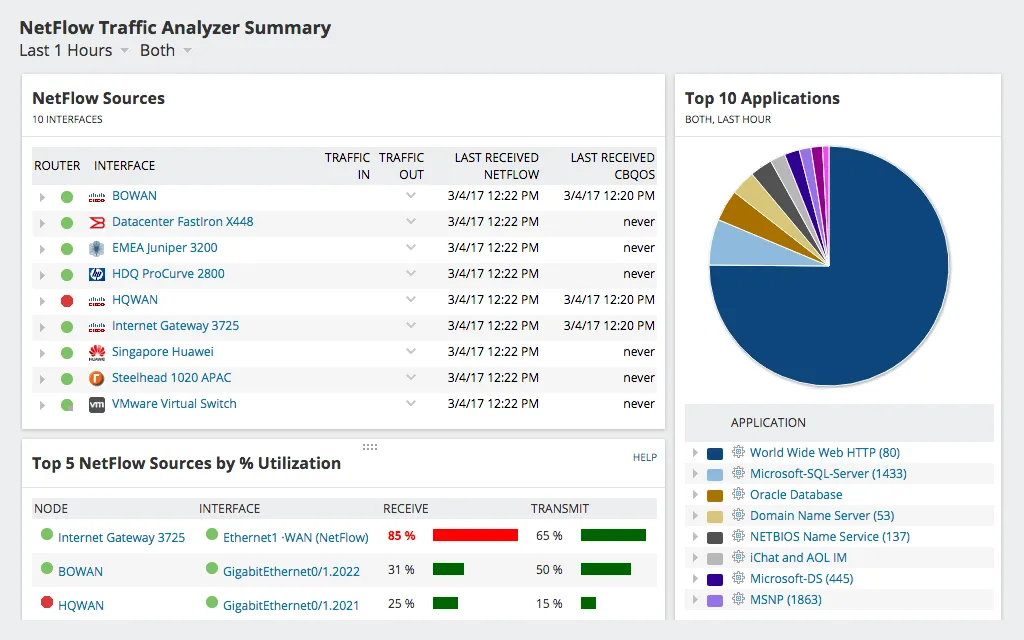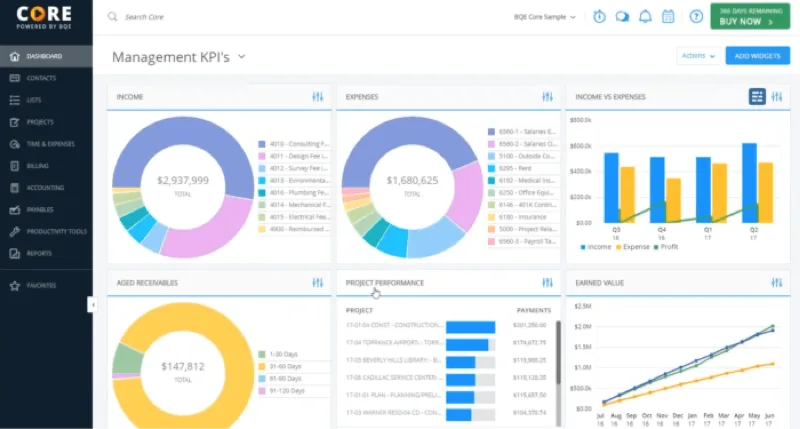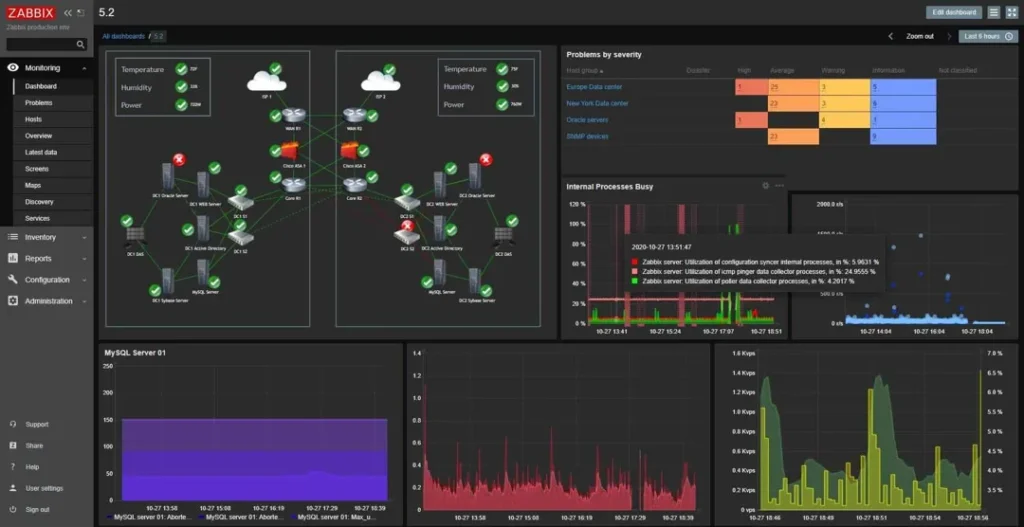A well-structured computer network is the backbone of success in the ever-evolving engineering landscape, where precision and collaboration reign supreme. Regardless of their size, engineering firms must adhere to stringent requirements regarding their digital infrastructure.
The right network can foster seamless communication, facilitate data sharing, and ensure efficient collaboration among engineers and their clients.
This comprehensive guide delves into the essential computer network requirements for engineering firms, empowering you to build a network that meets and exceeds industry standards.
High-Speed Internet: The Lifeblood of Engineering Firms
In the fast-paced world of engineering, every second counts. High-speed internet is the lifeblood of engineering firms, enabling them to access cloud-based design tools, collaborate with remote teams, and swiftly download/upload large files. Invest in a robust internet connection to ensure your network keeps up with the demands of modern engineering.
Fiber-optic broadband is often the preferred choice with its blazing-fast speeds and reliability. However, always consider your specific location and connectivity options.
Want to delve deeper into network security or scalable infrastructure? Explore our related articles for in-depth insights:
Fortifying Network Security: Safeguarding Engineering Data
The protection of sensitive engineering data is non-negotiable. Engineering firms must implement robust network security measures in an era of increasing cyber threats.
Here are the critical components of a comprehensive security strategy:

Firewalls: Your First Line of Defense
Firewalls act as a barricade between your network and potential threats. A robust firewall system filters incoming and outgoing network traffic, blocking malicious elements and permitting legitimate data. Invest in state-of-the-art firewalls and regularly update their rule sets to stay ahead of emerging threats.

Antivirus Software: Shielding Against Malware
Malware can wreak havoc on your network by infecting devices and compromising data integrity. Equip every device on your network with reputable antivirus software, and ensure it’s updated regularly. Real-time scanning and threat detection are essential features.

Data Encryption: Securing Confidential Information
To protect confidential engineering data during transmission, implement encryption protocols. Technologies like SSL/TLS (Secure Socket Layer/Transport Layer Security) ensure that data sent between devices is indecipherable to prying eyes, adding an extra layer of security.
Scalability: Future-Proofing Your Network
Engineering firms are dynamic entities, and their network requirements can change rapidly. To stay ahead of the curve, designing a scalable network infrastructure is imperative. Scalability ensures that your network can effortlessly accommodate future growth without causing disruptions or costly overhauls. Consider the following aspects:

Network Architecture: Plan for Expansion
Choose a network architecture that can be easily expanded to accommodate more devices, users, and data traffic. Scalable network designs often employ modular components that can be added as needed.

Bandwidth Management: Stay Agile
Implement bandwidth management tools that allow you to allocate resources dynamically based on real-time demand. This ensures critical operations always receive the necessary bandwidth while preventing network congestion.
Not sure if your network is ready for future growth? Request a free networking consultation to find out!
Redundancy: Minimizing Downtime
Downtime is the enemy of productivity, and engineering firms can’t afford to be offline. To minimize disruptions, invest in network redundancy:

Backup Internet Connections: A Safety Net
In the event of an internet service provider (ISP) outage, having a backup connection is a game-changer. This could be a secondary ISP or a failover solution that seamlessly switches to a backup connection when the primary one fails.

Power Redundancy: Uninterrupted Operations
Power outages can cripple your network, even if your internet connection remains intact. Implement uninterruptible power supply (UPS) systems to ensure uninterrupted network operations during power disruptions.
Leveraging Collaboration Tools: Enhancing Teamwork
Effective collaboration is the cornerstone of successful engineering projects. Modern engineering firms rely on a range of network-based collaboration tools to facilitate teamwork and communication:

Video Conferencing: Bridging Distances
Video conferencing platforms enable real-time face-to-face meetings, making it possible to collaborate with teams and clients regardless of their physical location. High-definition video and crystal-clear audio ensure seamless communication.

Project Management Software: Streamlining Workflows
Project management software helps engineering teams organize tasks, track progress, and meet deadlines. Cloud-based solutions provide accessibility from anywhere, fostering efficient collaboration.
Data Backup and Recovery: Protecting Your Assets
Engineering data is precious, and its loss can be catastrophic. Implementing robust data backup and recovery procedures is essential:

Regular Data Backups: Safety Nets
Regularly back up all critical project data to secure on-site and off-site locations. Automated backup solutions can simplify this process, ensuring no data is overlooked.

Disaster Recovery Plan: Preparing for the Worst
Develop a comprehensive disaster recovery plan that outlines procedures to follow during data loss, system failures, or natural disasters. Regularly test and update this plan to ensure its effectiveness.
Remote Access: Empowering Engineers in the Field
Engineering projects often require on-site inspections or field work. To ensure engineers can access resources and data seamlessly, provide secure remote access:

Virtual Private Networks (VPNs): Secure Connections
VPNs create encrypted tunnels between remote devices and your network, ensuring data security during transmission. They are essential for secure remote access.
Compliance: Navigating Regulatory Waters
Engineering firms may handle sensitive client information and must adhere to industry-specific data security and privacy regulations. Compliance is not optional; it’s a legal and ethical imperative:

Data Protection Regulations: Stay Informed
Keep abreast of data protection regulations that apply to your industry and location. This may include GDPR in Europe or HIPAA in the healthcare sector. Implement necessary measures to comply with these regulations.
Monitoring and Maintenance: Keeping the Network Shipshape
A network is a living entity that requires constant monitoring and maintenance to perform optimally. Neglecting this aspect can lead to inefficiencies and vulnerabilities:

Network Monitoring Tools: Real-Time Insights
Deploy network monitoring tools that provide real-time insights into network performance. These tools can identify issues before they become critical, allowing for proactive maintenance.

Routine Maintenance: Preventative Care
Schedule routine maintenance tasks like hardware inspections, software updates, and security audits. Regular maintenance prevents potential problems and extends the lifespan of network components.
Training: Empowering Your Team
Your network is only as secure as the people who use it. Ensure that engineers and staff receive comprehensive training on network security best practices and how to use network resources effectively:

Security Awareness Training: Knowledge Is Power
Regularly educate your team about the latest cybersecurity threats and best practices. Encourage a culture of vigilance and responsible online behavior.

Network Resource Training: Maximizing Efficiency
Provide training on how to leverage network resources efficiently. This includes using collaboration tools, accessing remote resources securely, and troubleshooting common network issues.
In summary, the success of engineering firms hinges on robust, secure, and scalable computer networks that support their operations, collaboration, and data protection needs. By implementing these computer network requirements and staying attuned to technology trends and industry-specific regulations, engineering firms can lay the foundation for efficiency, productivity, and growth.
For engineering firms seeking the right IT partner to navigate the intricacies of network management and cybersecurity, look no further. Gulf South Technology Solutions is the IT firm your engineering firm needs. We’ve been Baton Rouge’s most knowledgeable IT experts since 2005, and we’re here to ensure your network runs flawlessly.
Ready to take your engineering firm’s network to the next level? Contact us today! Not sure yet? Visit our IT services for engineering firms page to learn more.


